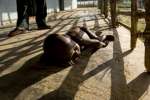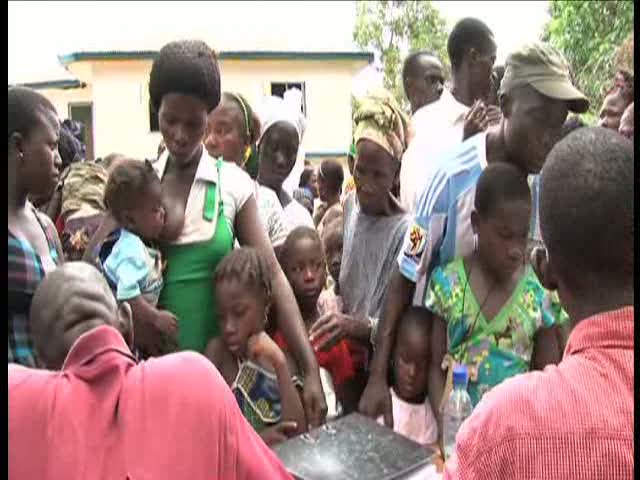Liberian fisherman returns to lost family as refugee status deadline looms
Telling the Human Story, 15 May 2012
CONAKRY, Guinea, May 15 (UNHCR) – During almost 20 years of exile in Guinea, Joseph did not know if his family was alive or dead. When he recently found out by chance that they had survived the attack that caused him to flee his native Liberia, he decided he must go back.
"For the first time, I am eager to return home. I want to see my family," said the 55-year-old fisherman, who is joining a growing number of Liberian refugees who are returning home with UNHCR help before they lose refugee status.
Once the so-called cessation clause has been invoked on June 30, Liberian exiles will no longer be regarded as refugees because their country has enjoyed nine years of peace. "The reasons that forced Liberians to flee from their country no longer exist," noted UNHCR Representative in Liberia Cosmas Chanda.
Joseph, who spoke to UNHCR in Conakry, is among hundreds of refugees in countries of asylum such as Côte d'Ivoire, Ghana, Guinea, Nigeria, Sierra Leone and The Gambia, who have decided to return home before the deadline.
Since the start of this year, UNHCR has facilitated the repatriation of more than 4,800 Liberian refugees compared to 1,762 for the whole of last year, and some 126,000 by land, air and sea since peace returned to Liberia in 2003 after years of devastating war.
"We are happy that a lot of people are now opting for voluntary repatriation. The new Liberia needs people," said Tchakoly Ali Tchanile, head of the UNHCR sub-office in N'zerekore, Guinea.
The refugee agency supported a recent mass information campaign in five West African countries to inform Liberian refugees in the region about the situation in Liberia, which has held two presidential elections since 2003. The campaign also told them of the options for repatriation or local integration in their host country.
Joseph is among those who decided to return, though he was in no hurry to go back until he heard word of his wife and five children. He recalled the day the family was separated in 1991. He was out fishing when rebels attacked their home town in south-eastern Liberia.
"There was no way to return home and search for them [his family], so I fled to Guinea. They did not know my whereabouts and I did not know whether they were alive," he told UNHCR, adding that he had recently been in contact by phone after discovering from a refugee returnee that they were alive.
"Talking to my family was the happiest moment of my life. When I separated from my family, my wife was pregnant. I am very happy to learn that my unseen child [a daughter] is now in high school," added Joseph, who is expected to be flown back to Liberia soon after years of working as a labourer in Conakry.
In addition to arranging transportation for registered refugees who wish to return home, UNHCR provides a cash grant to refugees and additional funding for those who need transport to their home areas after repatriation to Liberia.
But thousands of Liberians wish to remain overseas. Like Joseph, Vontaay has been living in Guinea for two decades, but the 44-year-old Liberian has decided to stay. "I am a locally integrated refugee," he said, adding that UNHCR had given him shelter assistance and income-generation support. "I have found a new home in Guinea," he said proudly.
The UN refugee agency is working with the Liberian authorities to deliver national passports to all Liberians wishing to locally integrate. In addition, UNHCR is working with its partners and the authorities to facilitate integration and to deliver work and residence permits to all Liberians wishing to locally integrate so that their legal status is secure after the cessation.
Joseph, meanwhile, is already planning his future. "I am very grateful to UNHCR for their assistance to us refugees over the years. Having located my family, I will be returning home a happy man to continue my fishing and start a fresh new life."
Between 1989 and 2003, more than 350,000 Liberian refugees fled the civil war raging in their country. The fighting and violence left an estimated 200,000 dead more than 800,000 internally displaced.
In Liberia, UNHCR has been also involved in the return of more than 320,000 internally displaced people to their areas of origin. This programme was successfully completed in 2006.
By Sulaiman Momodu
in Monrovia, Liberia























































